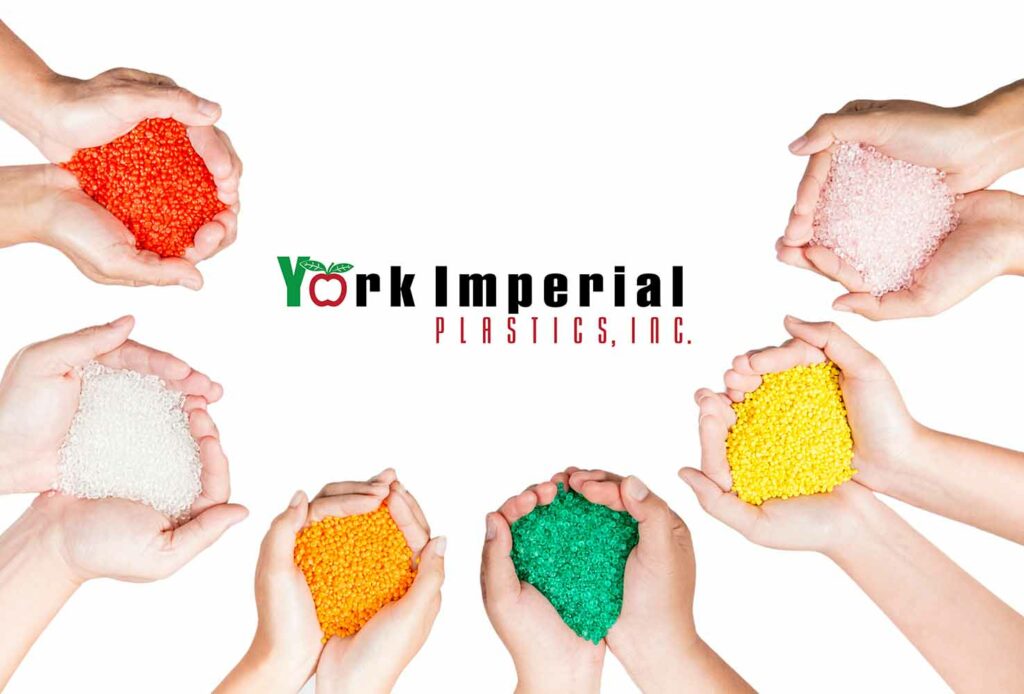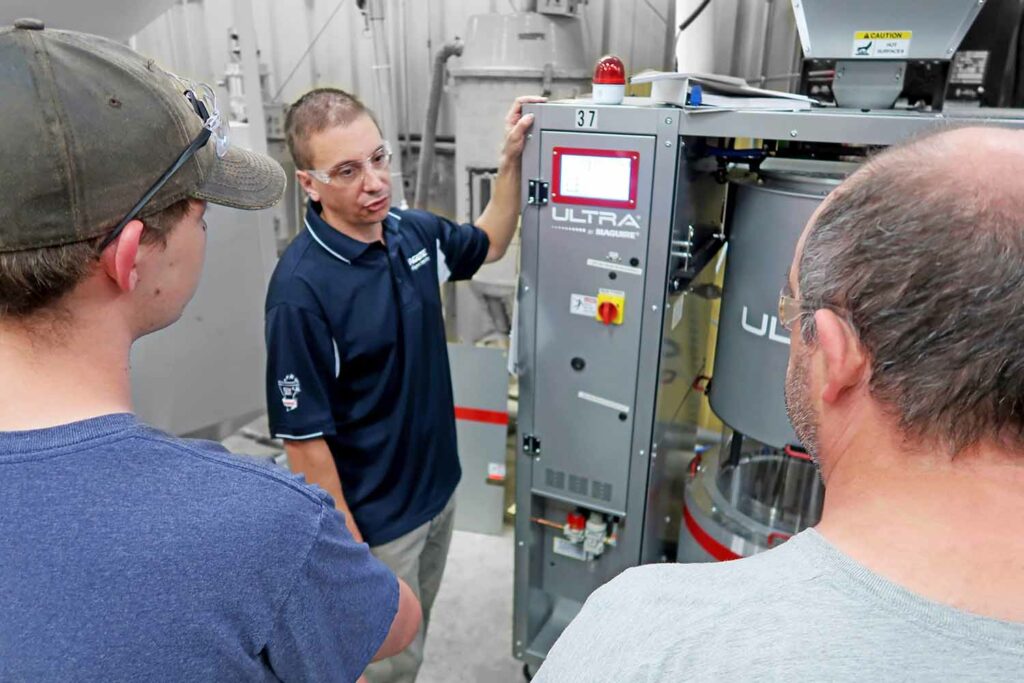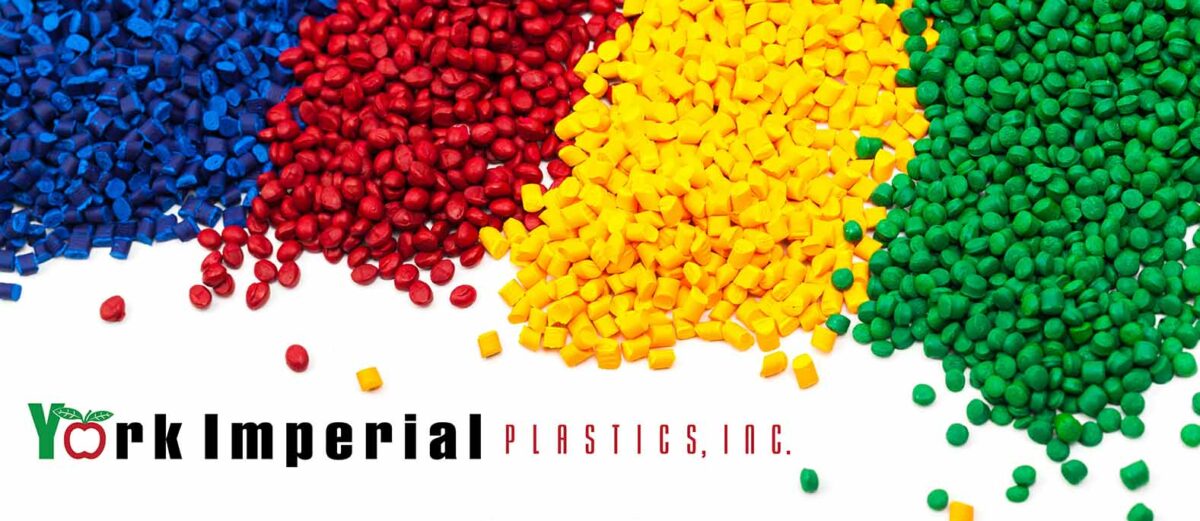At York Imperial Plastics, our products are manufactured via thermoplastics from virtually all commodity and engineering resins and elastomers, including those filled with glass, minerals, and flame retardants. As your partner in manufacturing, York Imperial’s engineering team has the ability to determine material behaviors in design such as shrinkage and warpage prior to even cutting steel.

Commodity Resins
Resins such as those listed below, are traditionally low cost and offer the most consistent performances during the injection mold process.
- Polypropylene
- Polyethylene
- High-Impact Polystyrene
- ABS (Acrylonitrile Butadiene Styrene)
Engineered resins
Engineered resins, on the other hand, are resins designed with specific applications in mind. These resins are tailored to meet your exact manufacturing needs and known for their performance characteristics such as heat tolerance, chemical resistance, and strength. Some examples of engineered resins are:
- Glass-Filled Polypropylene

Resin Selection
Rest assured, our team of experienced engineers are here to help. From the impact of ABS and lubricity of Acetal to the chemical resistance of Polypropylene, our team of experienced engineers and plastics processors ensures that our customers find the right resin for their product’s specific application to mold the highest quality product while still offering the best value.
Modern Material Handling
Each of York Imperial’s 25 all-electric injection molding machines is equipped with dryers and dew point monitors featuring:
- Centralized material handling and drying
- Automated closed-loop material handling
- Preproduction moisture analyzation for all production lots
In addition, material moisture analysis is performed throughout the production process.

At York Imperial Plastics, we’re changing the material handling game. Traditional desiccant material dryers can be energy hogs and consume around 45 watts of energy per hour to dry material. Our modern material handling system features vacuum dryers which utilize only 4 watts of energy per hour. This technology not only saves energy but also helps to create a more consistent and efficient injection molding process.
